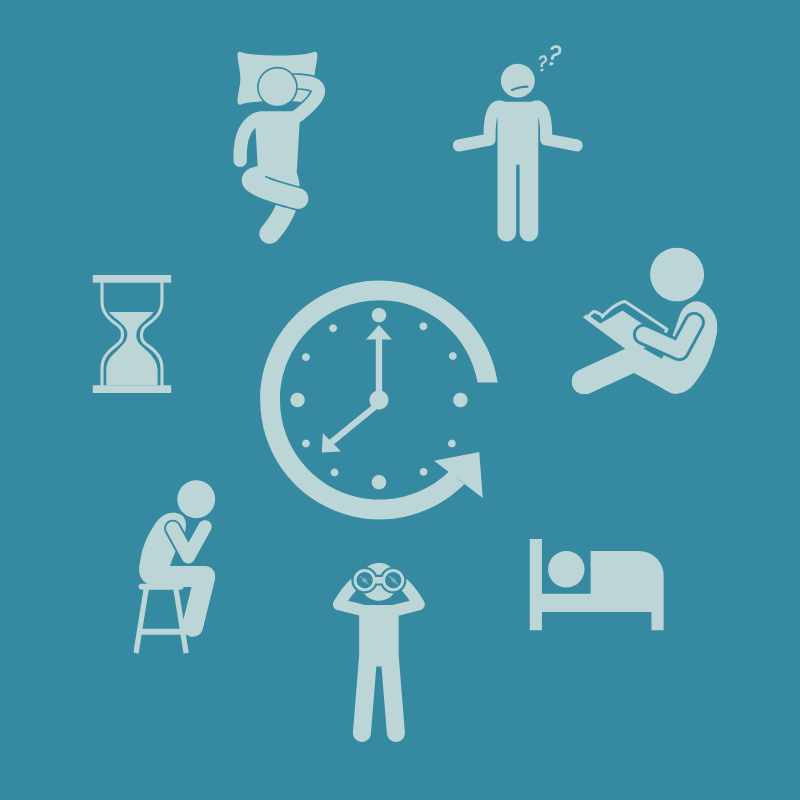Translated by Charlotte Doane
The seventeenth-century French historian Houdard de La Motte once said that boredom was born of uniformity. Though he has now largely fallen into obscurity, his words are a surprisingly apt description of life in the time of lockdown. Whether we are struggling to balance work and family or suddenly have found ourselves with more free time than we know what to do with, most of us are dealing with real, profoundly boring monotony.
In our hyperconnected, hyperproductive modern society, our desire for constant stimulation has become an addiction.
In our modern society, where we are always encouraged to put in extra hours—while being a “team player,” a perfect parent, a loving spouse, a loyal friend and a model citizen, of course—admitting boredom is almost taboo. This is nothing new. In the Middle Ages, the church condemned boredom, declaring it a cardinal sin. Idle hands are the Devil’s workshop, after all. But as the centuries wore on, so did the battle between “bad” boredom and “good” boredom, with philosophers from Seneca to Proust arguing that it can invite self-reflection and worldly wisdom. The Romantics, fascinated with the idea of nothingness and the emptiness of existence, considered boredom a source of inspiration.
A recent study surveyed 3,500 Italian citizens, asking them to list the most negative emotions they have felt during lockdown. The number one response was loss of freedom, and number two, boredom. It seems that much of what makes this time difficult is the sense of isolation and restriction. We feel suffocated by both government directives and our own four walls, unable to fully exercise our free will to do all the things that give life meaning. It’s easy to see why Tolstoy defined boredom as “the desire for desires.” In our hyperconnected, hyperproductive modern society, our desire for constant stimulation has become an addiction. Unsatisfied, it can leave us in a state of lethargy and apathy, of guilt and anxiety, and lead to counterproductive or even self-destructive behaviours, whether drug and alcohol abuse, problem gambling, or compulsive smart phone use. These responses to boredom are nothing more than strategies for avoidance and passive habits, and while they may provide temporary relief from our dissatisfaction, they will never cure it. Boredom is a beast that cannot be hunted—but it can be tamed.
When boredom rears its head, it’s telling us to zone out for a moment—just long enough for the brain to activate its “default mode,” a neural network responsible for solving problems and developing original ideas.
“The positive side of boredom is that, if responded to in an adaptive way, it is this signal to explore, [to] do something else. That what you’re doing now isn’t working,” says James Danckert, Professor of cognitive neuroscience at the University of Waterloo. In other words, when boredom rears its head, it’s telling us to zone out for a moment—just long enough for the brain to activate its “default mode,” a neural network responsible for solving problems and developing original ideas. This wandering-mind state is really not so bad. In fact, it pushes us to draw on our own inner resources to create something new, tailored to our individual needs and interests. Default mode is also the idea behind the current parenting trend of encouraging boredom in children to help them develop imagination and self-sufficiency.
A wandering mind can work large or small wonders. It can solve simple problems, like filling the void with yet another breadmaking session. Or it can lead to a revelatory stroke of genius, like a researcher suddenly discovering the missing molecule in the cure for COVID-19. And somewhere in between, boredom has inspired one Instagrammer to create the series Ennui Magique, a catalogue of quips and quotes that sum up life in lockdown, such as the relatable, “When I see my neighbour across the street get up at 3 p.m. and eat surimi in his window, I feel like I’m doing all right.”
Availability to the self is the nourishment of personal development, a healthy state that can be cultivated through activities such as meditation or photography.
Default mode also promotes another process, known as autobiographical planning, in which the brain steps back not only to revisit past experiences and sort through memories but also to envision the future, set goals and conjure up strategies to achieve them. Essentially, it tells us the story of ourselves. It allows us to get to know ourselves better and figure out our desired place in the world, helping us to flourish by aligning our thoughts, words and actions.
Psychiatrist Serge Tisseron prefers the term “availability to the self” over boredom. To him, boredom is equivalent to the Roman notion of taedium vitae, a lasting weariness or loathing of life. On the other hand, availability to the self is the nourishment of personal development, a healthy state that can be cultivated through activities such as meditation or photography. Even small, random acts of everyday tedium—daydreaming while staring out the window (perhaps listening to Bored by Billie Eilish) or patiently waiting for the kettle to boil, resisting the urge to do something else in the meantime—these can be equally wonderful ways to set the mind free and let boredom work its magic. If we allow ourselves a little boredom every day, we can learn to live more resiliently. Then again, sometimes you’re just sick and tired of feeling sick and tired—and that, too, is profoundly human.



